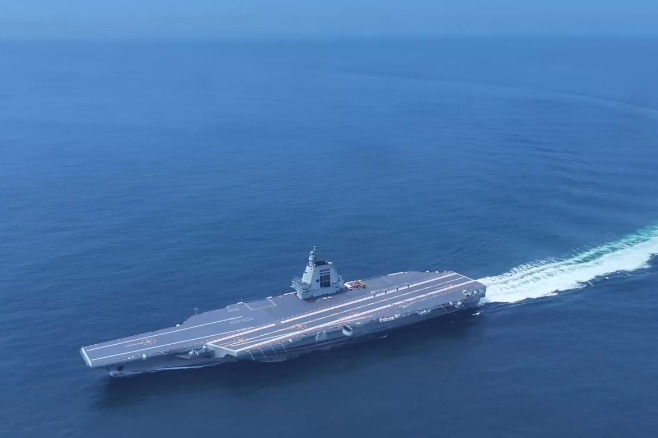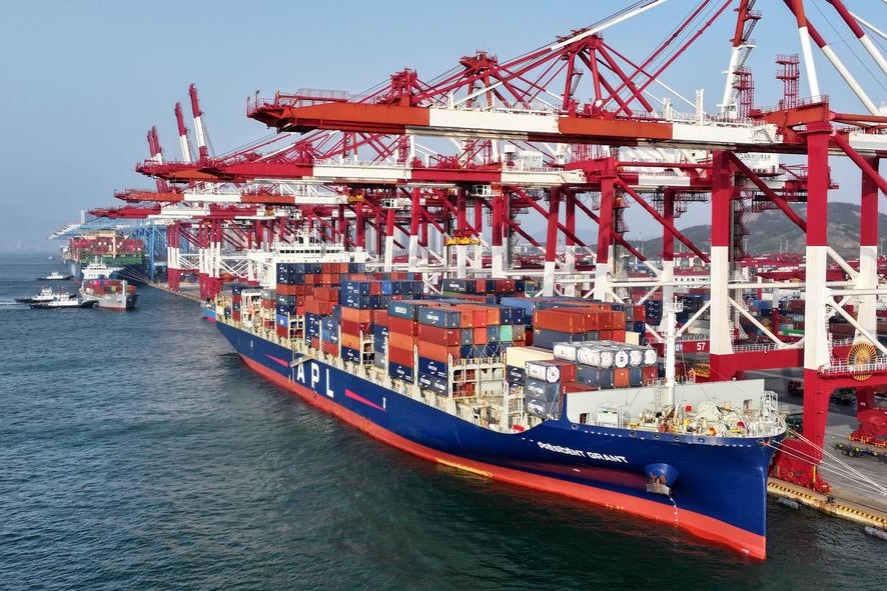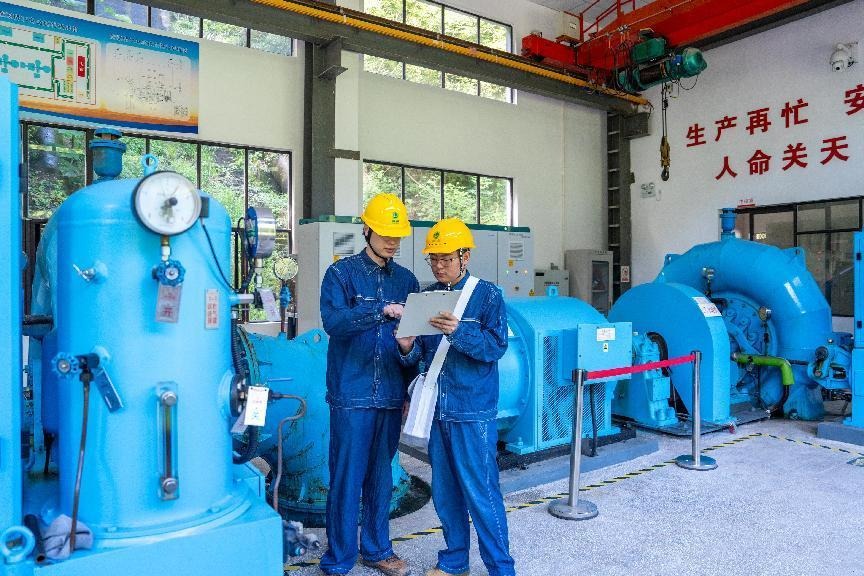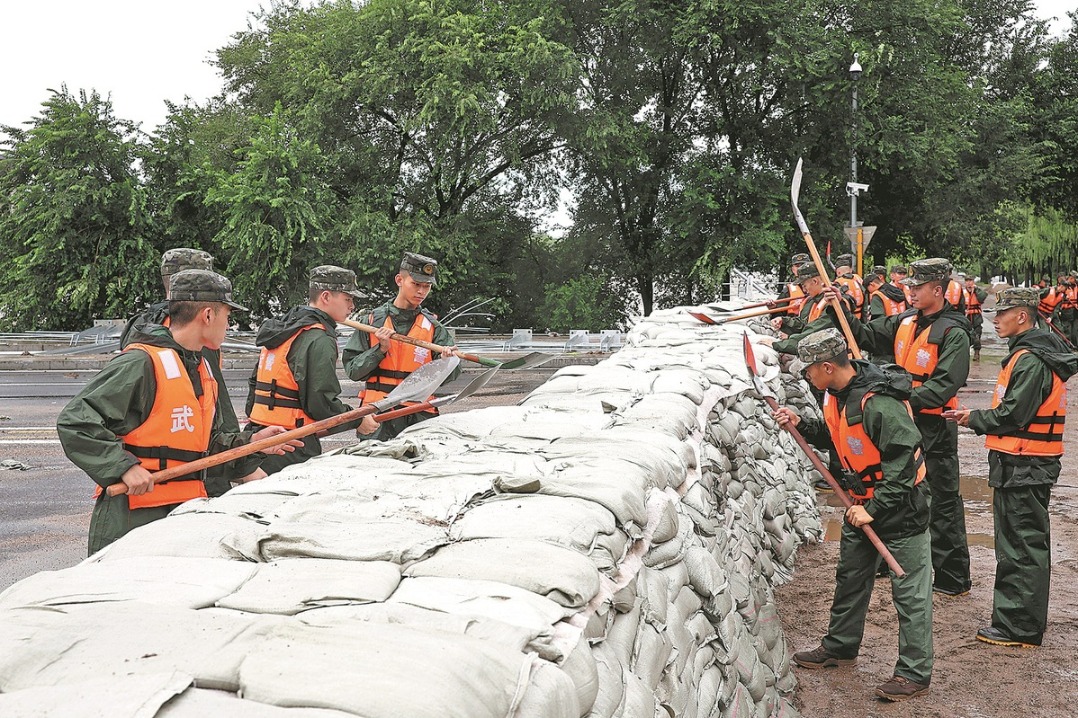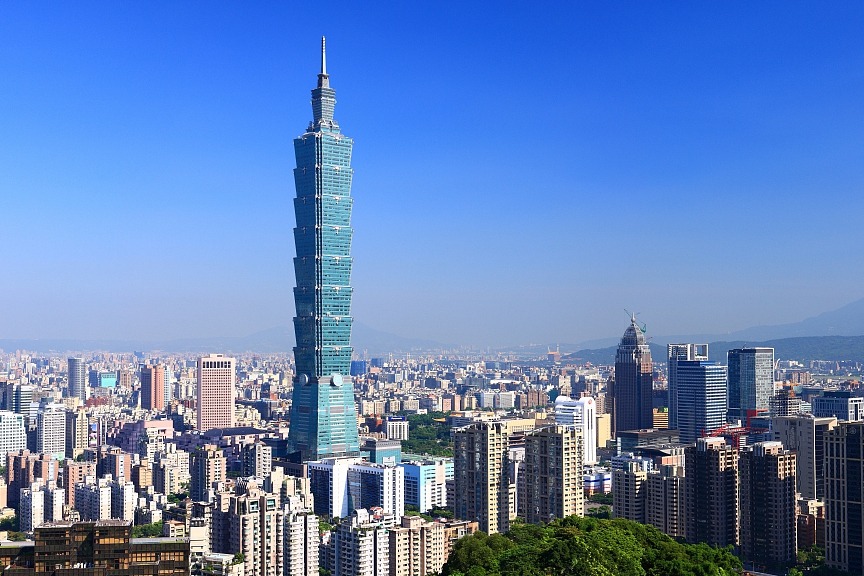China a stabilizer of world peace, development


The ongoing 2024 Summit of the Forum on China-Africa Cooperation held from Wednesday to Friday in Beijing serves as a compelling illustration of China's commitment to promoting peace and development worldwide. The deepening China-Africa cooperation is poised to reach new heights.
The world has been witnessing the construction of a multipolar international order despite the many crises and conflicts across the world, and the threat of another world war. Against this background, China's foreign policy acquires added importance, because China is a major player in international relations today. China has proposed many important initiatives, including the Belt and Road Initiative, the Global Development Initiative and the Global Security Initiative, calling for dialogue to find ways to overcome the challenges the world is currently facing.
China's enactment of the Law on Foreign Relations on July 1, 2023, delineates the foundational principles and objectives guiding its international engagements. Notably, the Chinese version of the law emphasizes "peace" 11 times and "development" 40 times. Article 1 of the law underscores the establishment of a community with a shared future for mankind, underscoring China's dedication to fostering global peace and development. This underscores China's foreign policy objective of upholding peace and advancement on a global scale.
There are two basic principles that distinguish Chinese foreign policy from those of other countries. The first is the principle of peaceful development without wars or invading other countries to seize their wealth. And the second is the principle of equal treatment, mutual respect and non-interference in the internal affairs of other countries. The law explicitly states that China follows the path of peaceful development, adhering to the fundamental policy of opening-up, and pursues a mutually beneficial strategy of opening-up in which all win.
In line with the law, China has intensified its diplomatic efforts to overcome global challenges. China has realized that if it leaves the issues to the developed countries to resolve, the conflicts raging around the world, including the Russia-Ukraine and Israel-Palestine conflicts, will not end anytime soon, threatening global peace and stability and creating grave problems for China's trade and investments. Also, China has been making more efforts to deepen cooperation with many countries to restore peace in conflict zones, including in the Middle East, which has been witnessing wars since the US invasion of Iraq in March 2003.
China has achieved successes in this direction. For example, it mediated a rapprochement between Iran and Saudi Arabia in March last year, with the two countries agreeing to resume diplomatic relations after seven years. China has also succeeded in bringing together the Palestinian factions, which agreed to achieve "a comprehensive Palestinian national unity that includes all Palestinian factions under the PLO framework, and to commit to the establishment of an independent state with Jerusalem as it capital … with the help of Egypt, Algeria, China and Russia".
China proposed the Belt and Road Initiative 11 years ago, and through it, China has proved that it is possible to establish cooperation among all countries so global trade and investment can be conducted freely. But despite the initiative's mutually beneficiary nature, the US has been trying to disrupt its progress.
In addition, the US' financial policy and continuous printing of dollar bills is causing a global wave of inflation, affecting countries across the world, especially the countries in the Global South. It has also hindered developing countries' ability to invest in infrastructure because of rising costs and those countries' inability to borrow funds from international financial institutions due to raised lending rates and/or downgrading of their credit ratings. Not to forget the conflicts raging in the Middle East, including the Israel-Palestine conflict, have increased the cost and time of shipping oil and gas, and other products, affecting supply chains and new investments.
Hence, it is important for China to intensify its diplomatic efforts to overcome global challenges for the benefit of not only China but also the rest of the world, and to build a community with a shared future for mankind.
The author is the first economist and researcher at The Egyptian Ministry of Foreign Trade and Industry.
The views don't necessarily reflect those of China Daily.
















